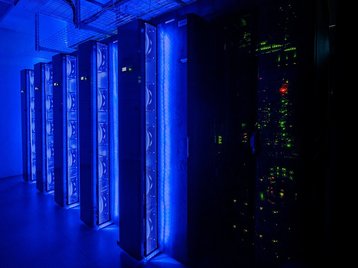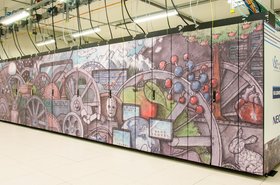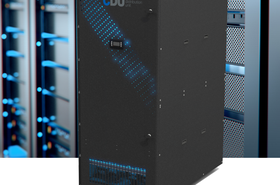Paderborn University, Germany, has begun building a new HPC facility, working with a state-owned construction firm.
The new 2,500 sq m (27,000 sq ft) structure will be located on the university campus in the state of North Rhine-Westphalia. The developer of the project is the Bielefeld branch of BLB North Rhine-Westphalia (NRW).
The facility will house the next phase of Noctua, one of the most powerful supercomputers in Germany. Noctua will use a 340 sq m (3,600 sq ft) modular computer hall designed to accommodate future generations of HPC systems.
In addition to the computer room, there will be offices, IT workshops, meeting rooms, laboratories and lecture halls. The construction costs are estimated to be around €18m ($20m) and another €10m ($12m) has been allocated for the upcoming upgrade of Noctua which was initially installed back in 2018.
The project is funded by Germany's federal government and the state of North Rhine-Westphalia.
Über computer
Noctua is a Cray-CS500 cluster with 256 computing and 16 FPGA nodes. Each node has two Intel Skylake-based Xeon Gold processors and 200 Gigabyte RAM. An Omni-Path network with 100 Gbps ensures fast communication and the Luster File System records 791 terabytes of data.
The university’s Dr. Dieter Herr said: “The data center for Noctua secures an efficient and future-proof infrastructure in the field of high-performance computing for Paderborn.
“Not only scientists from Paderborn University, but from all over North Rhine-Westphalia and beyond will be able to conduct research at an internationally competitive level in this center.”
The VP of Paderborn University, Simone Probst, pointed out the importance of the supercomputer for the university: “With Noctua, we have created the best conditions for interdisciplinary research at the interface of methodology, application and computer system research.
“For Paderborn University this is an important step towards further advancing its cutting-edge research internationally.
“Noctua and the related research building are important milestones on the way to optimally integrate the operation of the high-performance computer, scientific work, and student training in this area under one roof,” said Prof. Dr. Christian Plessl from the Paderborn Center for Parallel Computing.
The construction was announced back in October at a conference by Gauss Alliance where scientists and HPC users shared current research activities and issues in German HPC computing.




